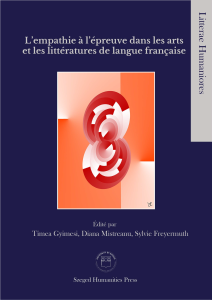Récit d’empathie et (re)construction identitaire dans La Théo des fleuves de Jean Marc Turine
Tartalom
A tale of exile and a quest for identity, a Bildungsroman centered on a woman, La Théo des fleuves by Jean Marc Turine follows the destiny of a Romani heroine who overcomes the atrocities of the 20th century – racial discrimination, the Romani Holocaust, the establishment of communism – and a series of personal trials such as forced marriage, rape, repudiation, and the death of her child. Returning to her Romani community, the elderly Theodora encourages its members to emancipate themselves from poverty and the weight of patriarchal customs through education. In this context of suffering and the quest for identity, empathy plays a defining role, allowing the characters to better define their place within an ethnic group, but also to distinguish themselves as citizens of the world. Thus, our aim will be to investigate the forms and narrative means (types of focalization, blurring of narrative voices, poetic turns, intertextual references) that underpin the writing of empathy in La Théo des fleuves, both in the sense of an “empathetic projection” that encompasses the author and the characters, and in that of an intertextual and intermedial empathy where music and dance mobilize all senses and make possible a kind of affective community in which the readers and their emotional experience can also be included.
Keywords: exile, identity, empathy, deportation, Roma


